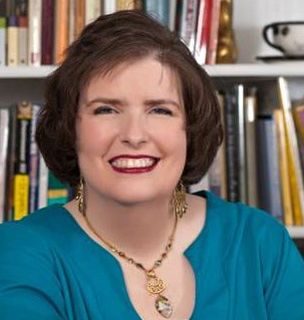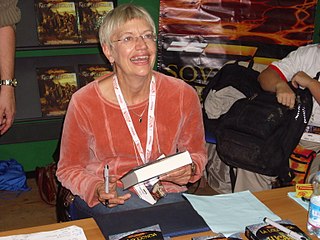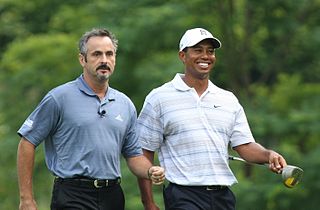A Quote by Barry Marshall
My mother was a nurse, and in her era, most diseases weren't understood; people put mustard plasters on knees and rubbed camphor on your chest if you had a cough and did funny things to you if you had tuberculosis - all these things that really made very little difference once proper treatments were brought in.
Related Quotes
She remembered that once, when she was a little girl, she had seen a pretty young woman with golden hair down to her knees in a long flowered dress, and had said to her, without thinking, "Are you a princess?" The girl had laughed very kindly at her and asked her what her name was. Blanche remembered going away from her, led by her mother's hand, thinking to herself that the girl really was a princess, but in disguise. And she had resolved that someday, she would dress as though she were a princess in disguise.
At that moment a very good thing was happening to her. Four good things had happened to her, in fact, since she came to Misselthwaite Manor. She had felt as if she had understood a robin and that he had understood her; she had run in the wind until her blood had grown warm; she had been healthily hungry for the first time in her life; and she had found out what it was to be sorry for someone.
What did that mean, to kiss? You put your face up like that to say goodnight and then his mother put her face down. That was to kiss. His mother put her lips on his cheek; her lips were soft and they wetted his cheek; and they made a tiny little noise: kiss. Why did people do that with their two faces?
Yet there were times when he did love her with all the kindness she demanded, and how was she to know what were those times? Alone she raged against his cheerfulness and put herself at the mercy of her own love and longed to be free of it because it made her less than he and dependent on him. But how could she be free of chains she had put upon herself? Her soul was all tempest. The dreams she had once had of her life were dead. She was in prison in the house. And yet who was her jailer except herself?
You know," he said with unusual somberness, "I asked my father once why kenders were little, why we weren't big like humans and elves. I really wanted to be big," he said softly and for a moment he was quiet. "What did your father say?" asked Fizban gently. "He said kenders were small because we were meant to do small things. 'If you look at all the big things in the world closely,' he said, 'you'll see that they're really made up of small things all joined together.' That big dragon down there comes to nothing but tiny drops of blood, maybe. It's the small things that make the difference.
of all the unusual features of Stargirl, this struck me as the most remarkable. Bad things did not stick to her. Correction: her bad things did not stick to her. If we were hurt, if we were unhappy or otherwise victimized by life, she seemed to know about it, and to care, as soon as we did. But bad things falling on her -- unkind words, nasty stares, foot blisters -- she seemed unaware of. I never saw her look in a mirror, never heard her complain. All of her feelings, all of her attentions flowed outward. She had no ego.
I had always assumed we had an unspoken understanding about these things: that she didn't really mean I was a failure, and I really meant I would try to respect her opinions more. But listening to Auntie Lin tonight reminds me once agian: My mother and I never really understood one another. We translated each other's meanings and I seemed to hear less than what was said, while my mother heard more. No doubt she told Auntie Lin I was going back to school to get a doctorate.
I was in Toronto when they had a severe outbreak of SARS - you know, Severe Asian Racism Syndrome. I was in the airport and there were these big snowboarder guys and they had white masks around their necks, and as soon as they saw me, they put their masks on. So I went "cough, cough, cough... You wanna egg rorr?
I never saw my mother in jeans, even in the country. She had one pair, which I have, but she never wore them. They were from 'Rear Window,' in the end when she's wearing jeans and loafers and a shirt. They were comfortable things that zip at the back, with really tight little pleats. They're very dark, they're not proper denim.
The Flapper awoke from her lethargy of sub-deb-ism, bobbed her hair, put on her choicest pair of earrings and a great deal of audacity and rouge and went into the battle. She flirted because it was fun to flirt and wore a one-piece bathing suit because she had a good figure she was conscious that the things she did were the things she had always wanted to do. Mothers disapproved of their sons taking the Flapper to dances, to teas, to swim and most of all to heart.
Suppose you had inherited the same body and temperament and mind that Al Capone had. Suppose you had had his environment and experiences. You would then be precisely what he was. . . . For it is those things - and only those things - that made him what he was. . . . You deserve very little credit for being what you are - and remember, the people who come to you irritated, bigoted, unreasoning, deserve very little discredit for being what they are.
Once," Balinda begins softly, "when I was in the emergency room with my mother they brought in a murderer who had been shot and was dying, right there in front of us. I watched as the nurse touched his face and reassured him and I could not believe they were being so nice to him.""What happened?" Jill asked."My mother rose up, took my arm, gripped it as if she was a weight lifter and said, 'he was a beautiful baby once and his mother loved him'.





































